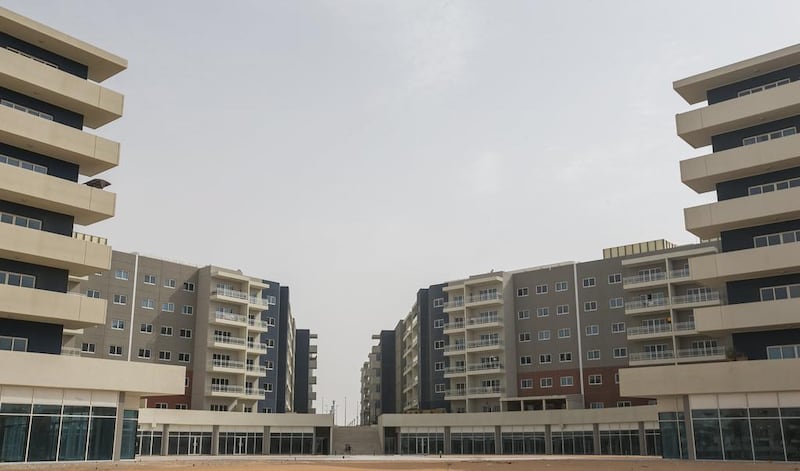Nearly a year after Abu Dhabi removed a 5 per cent rent cap for properties in the capital, property experts are calling on the government to reinstate rent controls to prevent low-paid workers from being priced out.
Last November the Abu Dhabi Executive Council abolished the annual extension of a 5 per cent cap on rent increases in the city, with the new laws becoming effective from November 10, 2013.
The municipality had been expected to introduce a new Dubai-style rent index, which would have divided the city into 10 to 12 zones according to rent levels and have set a guide rent for each zone based on market data analysis.
However, despite suggestions that the index would be implemented as soon as March and rumours that the officials had analysed the extensive Abu Dhabi-based rental portfolios of Abu Dhabi Islamic Bank and Abu Dhabi Commercial Bank, no such policy has been implemented and rents in the capital have been left to float at market rates for the past 11 months.
Property agents warned that if a new form of rent control is not introduced soon then a lack of new supply coupled with an increase in demand – caused by an increase in government expenditure and new rules requiring government employees to live in the emirate – could again lead to such large rent increases that workers are forced out of the city.
According to National Bank of Abu Dhabi data, average rents in the investment areas of Al Reem, Al Raha and Al Reef have risen from about Dh83 per square foot in November last year to about Dh87 per sq ft last month.
However, real estate experts point out that this fairly modest increase ignores lower-end secondary stock elsewhere in the city occupied by the same families for at least five years, where rents have increased typically from between Dh30,000 and Dh40,000 a year to between Dh60,000 and Dh70,000.
“For the lower-end secondary stock, rental increases certainly have been dramatic and there is a danger this will be pricing out the lower income earners in Abu Dhabi’s workforce,” said David Dudley, the head of JLL’s Abu Dhabi office.
“Annual residential supply completions for the next three to four years are anticipated to be at far lower levels than they have been historically, so the city is likely to need to exercise some sort of controls to prevent people from being priced out of Abu Dhabi altogether.”
He added: “This is particularly important for the lower-income categories who perform important roles servicing the local economy. The 2008 government Household and Expenditure Survey found that half the expatriate population of the capital were earning less than Dh9,000 per month. It is this category who need most to be protected from excessive rent increases.”
According to JLL, the number of new homes in the city is set to slump from an average of 10,000 mostly private units over the past three years to an average of 8,000 units – a large portion of which are restricted to Emirati housing.
“One year on from the removal of the rent cap is when we would have hoped to see some new form of rent controls coming in,” said William Neill, the head of Cluttons’ Abu Dhabi office. “The danger at the moment is that everything seems OK and that rents have stabilised. However, without a rental cap or index the market is still open to the kind of hikes in rent that we saw a few years ago and that prompted the implementation of the rent cap in the first place, because ordinary people were finding it hard to afford to live in the city.”
The Department of Municipal Affairs, the Department of Economic Development, the Urban Planning Council and Abu Dhabi Council for Economic Development had been charged with implementing the new index which would have benchmarked rents.
However, The National understands that officials have struggled to index private rents in the capital, which vary significantly in some neighbourhoods.
“A rent index is actually a very difficult thing to create in Abu Dhabi,” said Ben Crompton, managing partner at Crompton Partners in Abu Dhabi. “Dubai has an entire regulatory authority to put together its index and it seems like it is proving difficult to replicate in the capital. In some areas of the city, such as Khalifa City A and the older parts of the city, rents for apartments with the same number of bedrooms in the same neighbourhoods can vary widely based on the age of the building, the size of the apartment or the amount of facilities available.”
“Most of the world lives without rent controls,” Mr Crompton added. “They are a disincentive to potential landlords who want to get as much rent as possible for their investments. However, this needs to be balanced with the city’s ability to compete on a global marketplace, and part of that is attracting and retaining workers.”
“In Sharjah they have introduced a more sensible balance where rents are capped for the first two to three years and then allowed to float freely again, giving tenants more security but providing hope for landlords that they will also see a return on their investment.”
lbarnard@thenational.ae
Follow The National's Business section on Twitter






